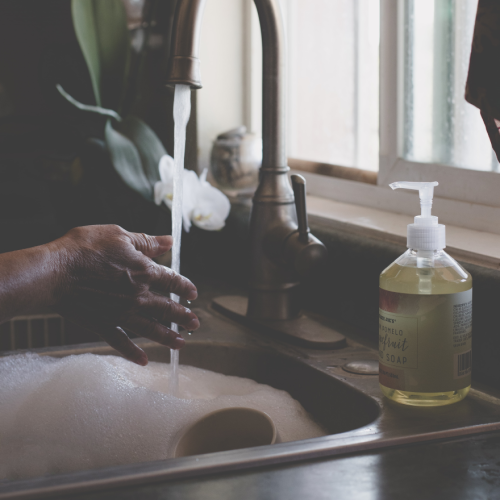Mindfulness
In today’s world, it is common to see people rushing to their next destination, getting coffee and food on the go, filling their time off with a to-do list, or scheduling a last-minute meetup. Along with staying constantly occupied, we tend to focus on worldwide outlets to occupy our time, but often forget to look to ourselves for insight. What does it feel like to be still? Do you allow yourself time for this stillness? Do you want to use your time to learn more about yourself?
A popular practice that provides space for focusing on yourself, increasing self-awareness, and being present in every moment, is known as Mindfulness. The beauty of mindfulness practice is that it allows you to create a non-judgmental space for yourself, where you are able to fully center your mind on the thoughts, feelings, actions, and desires that lead to peaceful acceptance.
The Benefits of Mindfulness:
Allowing yourself the time to be still will provide the space for self-awareness, self-acceptance, and healing. Allowing yourself to “check in” and identify your emotions while naming your thoughts, is among the best ways to gain control over your own life. When anxiety, depression, trauma, and grief enter our lives, we often feel as if they have control over us. We tend to live in the past when we feel depression, and the future when we feel anxiety. What would it look like to gain control, and live in the present? Mindfulness practice is an evidence-based practice that reduces stress and depression symptoms, and benefits other aspects of both mental and physical health.
This practice increases emotional regulation and impulse control, and results in positive changes within our personal relationships and everyday lives. Studies have shown that when we increase mindfulness practices, we are rewiring our brain by changing the brain’s structure and processing pathways (Davis and Hayes, 2011). As humans, the feeling of being happy is usually our end goal; however, the path to achieving this can seem daunting, and at times impossible. Yet, when we allow ourselves to be fully present as well as the space to concentrate on ourselves, we discover a special ingredient for wholeness.
How to Practice Mindfulness
Incorporating mindfulness into your life does not require a certification or class. There are amazing works of literature and certified professionals and scholars that study this evidence-based practice; however, anyone is able to achieve this practice on their own. For example, have you ever gone for a walk, or found yourself washing the dishes after dinner, meanwhile your thoughts and emotions felt chaotic and distracting? You may have found your mind wandering to the “to-do list” that needed to get done earlier in the day, or found yourself worried about the tragic events happening in our world, or maybe you were replaying a conflict that occurred in a relationship that week. These are just two examples of many everyday moments, where mindfulness practice can enter and center your mind on the present. While you are washing the pile of dishes in the kitchen, you can focus on that moment and allow yourself to feel the soap sponge in your hands, listen to the water running, watch the bubbles rise in the sink, and smell the lemon soap that you’re using. At this moment, you are training your own brain to slow down, be present, and embrace this judgment-free space.
Another strategy to be present with ourselves is creating space each day to be alone - close your eyes and allow the first thought that appears in your mind to come forth. Create a safe space in your mind that will only allow non-judgemental curiosity to be present. Invite that thought forward, focus on how it makes you feel physically and emotionally, with acceptance, and then send that thought away. This could be a 5 or 10-minute process that you have full control over.
When life feels daunting and you feel like you cannot catch a break, consider allowing yourself to take the mental, emotional, or physical break that you need, even if it is while you drive to and from work. An amazing part about mindfulness is that there are so many approaches available that you can try, in order to discover what may work best for you! You deserve to gain control of your life, as well as insight about yourself, and to enjoy the small and big moments of every single day. Our society will continue to encourage us to stay busy, be successful, and get stuff done; but do not forget to make space to be present and care for yourself - your emotions, desires, and needs. Taking a few minutes each day to simply exist with yourself can have long-lasting, positive effects, and you are more than worth the time!
Written by Emily Starkey
Citation:
Davis, Daphne & Hayes, Jeffrey. (2011). What Are the Benefits of Mindfulness? A Practice Review of Psychotherapy-Related Research. Psychotherapy (Chicago, Ill.). 48. 198-208. 10.1037/a0022062.




